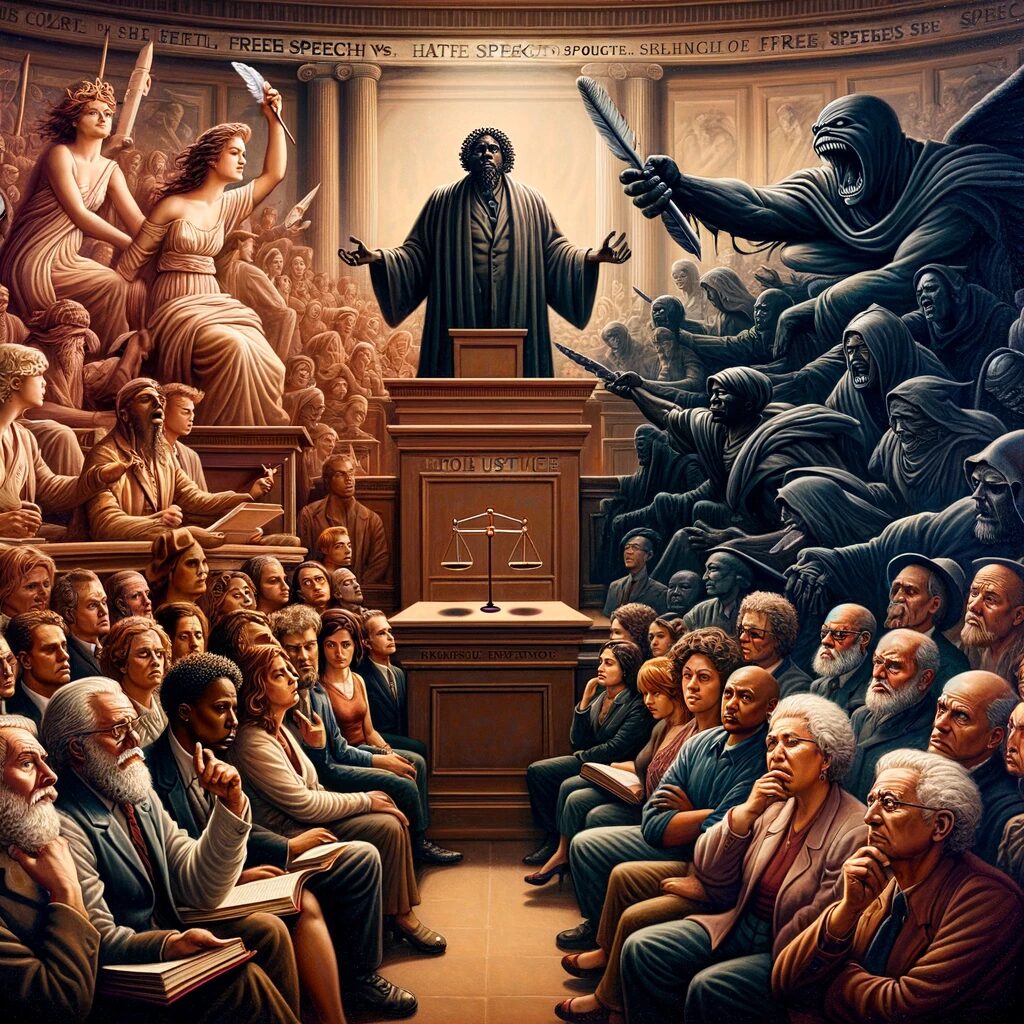
The much-discussed debate on free speech vs. hate speech has spilled over from the digital world to the off-line world. And, it’s not going to end any time soon.
In a way, the debate about Twitter/X and Facebook is quite simple: they’re businesses that Elon owns and that Zuck controls. They can do whatever they want.
The debate about college campus protests, however, is different. They’re not businesses that a single person can own or control. And, that’s where the role of university trustees comes in.
At a school like Harvard, MIT, or Penn, there is a governing board. Its members are “trustees,” the ones who hire and fire a college president, make strategic decisions, and approve policy. Other constituencies (faculty, alumni, students, donors, the public, etc.) can give input, but in the end the trustees make the decisions.
I’ve sat on many company boards as a venture capital investor, and I served as a trustee for one of my children’s schools (small potatoes, I know). I found the roles to be very similar and would boil it down to this: a trustee is a fiduciary.
I have slightly edited below what ChatGPT says is a university trustee’s fiduciary duties:
Trustees must prioritize the interests of the university over their own personal or professional interests.
Trustees are expected to act honestly and with integrity, making decisions they genuinely believe are in the best interest of the university.
Violations of these duties can result in legal and reputational consequences for both the trustees and the institution.
Trustees have to balance competing interests to come up with actions and policies that are good for the university as a whole. In the private sector, we call this applying the “business judgment rule.”
It means: trustees should not defend a president at the expense of other needs nor should they fire a president to appease one constituency. Trustees should not do what is politically expedient nor should they shy away from tough, unpopular decisions.
What does all this mean for today? Three things.
First, a university’s reputation is part of a trustee’s fiduciary duty, and the custodians of that brand ultimately are the trustees. I am shocked by how some centuries-old university brands have been tarnished in a matter of weeks.
Second, in a crisis trustees should lead from the front and communicate.
Private company boards attempt to do this. I am an investor in a company that went through a lay off years ago. The other VC director recommended that he and I show up at a company meeting. It wasn’t something I wanted to do but am glad I did it. People asked honest questions, and my co-investor and I gave honest answers. The team really appreciated it. Thankfully, the company stayed together and is now a large and growing business.
Perhaps a university president and board chair can hold a press conference? That would be unusual, but if they don’t manage the narrative, I think the narrative will continue to manage them.
Third, trustees should articulate the line between permitted speech and not-permitted speech and clearly communicate it to the university administrators, who then relay it to the broader community as they implement.
A policy could be broad or narrow, but there needs to be one. If not, a university will be in a perpetual “jump ball” grey zone and lurch from crisis to crisis as boundaries are tested. Brown University has clearly communicated their expectations for example: 41 students were arrested for occupying a building (here).
I do not envy the role of a university trustee. These are complicated times. But, I will finish by quoting a friend, who has served her alma mater tirelessly: “Trustees are powerful, but what good is power if they don’t use it to lead?”

Thanks for this!
Hey! You’re most welcome
Your article helped me understand the fiduciary duties of leaders of a university in comparison to leaders of a business. In the case of certain prestigious universities, the Trustees have let the world down by allowing its top leader to publish work that simply is not of acceptable quality, and to protect itself at the risk of harming students of a particular group and all students at the university. The snowball effect has been drastic and caused global and deep damage beyond any impact that could have been predicted. Thanks for putting this in perspective Jo.
You’re very kind to write! Trustees have a “duty of care” legally. They have to do the right thing.